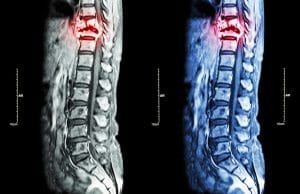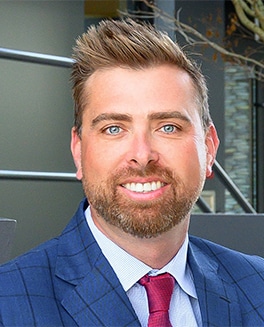Spinal Cord Injuries, Neuropathy, and Car Accidents
 Cars often make our lives easier; we get to go to the places we want to go and do the things we want to do. Their convenience helps us to forget how dangerous they can be when we least expect it. You can suffer a critical injury at a moment’s notice.
Cars often make our lives easier; we get to go to the places we want to go and do the things we want to do. Their convenience helps us to forget how dangerous they can be when we least expect it. You can suffer a critical injury at a moment’s notice.
One of the most serious injuries you can sustain is a spinal cord injury (SCI). According to the National Spinal Cord Injury Statistical Center (NSCOSC), car crashes have been the most common cause of spinal cord injuries in the country since 2015.
How do car accidents cause spinal cord injuries?
The reason car accidents can lead to SCI is based in physics:
When you are driving a car, you are creating kinetic energy, which is what propels you forward. Normally when we want to stop, we put the brakes on which slowly dissipates that kinetic energy through heat into the breaks. But in a car crash you are not able to get rid of that kinetic energy, so guess what happens? That energy gets transferred into your body. Depending on the speed, the direction of the hit, if you are wearing a seat belt, or if your headrest is up, your body will absorb that energy in a different way.
The spinal cord is at particular risk for damage. According to a 2017 study, rollovers are especially dangerous: “[The] Car rollover mechanism may produce intensive loads on [the] spinal column, particularly [the] cervical spine due to lack of protective devices for this region, and so result in higher risks of neurological injuries.”
It is important to understand the risk we put ourselves in when we go out on the road, whether that’s in a car, truck, or motorcycle. Once we understand the risk, we take precautions so that we never end up in the hospital with painful injuries, years of uncomfortable symptoms, and costly bills.
What is neuropathy?
The spinal cord is the highway of all the body’s neurological functions. It carries messages from the brain to the rest of the body parts. When the spine is damaged, it often follows that other injuries and complications arise: “The spine can experience trauma during a car crash, and disc herniation can occur, leading to back pain or neuropathy. The pain can be acute or chronic, following a car crash that causes injury to the spine.”
One such complication is neuropathy, the damage done to one or multiple nerves. Whether it is chronic (symptoms developed over time) or acute (sudden oncoming of symptoms), the symptoms are the same and not all of them are as simple as pain in the injured area:
- Numbness, tingling, or pain in the hands or feet
- Loss of coordination
- Paralysis of certain parts of the body
- Heart problems such as low blood pressure or abnormal heart rate
- Bladder problems / urination issues
- Gastrointestinal problems such as diarrhea and constipation
These are just to name a few, as the intricacies of the nervous system are complex, and injury to it can cause problems for possibly every part and function of the body. It goes without saying that treating any or all of these symptoms is a costly undertaking.
How do you treat SCI-related neuropathy?
Once you are diagnosed with neuropathy due to your car accident, there are several treatments available; however, some neuropathies cannot be cured completely.
- There is a whole list of different types of medicines that one can take for pain, infections, and even mental distress, leading to depression or anxiety.
- This includes physical, occupational (one may have to learn to do their job and daily habits differently depending on the severity of the collision), and mental health therapies. Behavioral adjustments in both diet and exercise may also be part of these therapies.
- In some cases, surgical intervention may help ease the condition.
- Braces, casts, and any other assistive technologies. In cases where there is permanent damage to the spinal cord, a person may need a wheelchair, feeding tube, or other aids.
Our first priority when it comes to serious injuries such as the ones that arise from car crashes is dealing with the injuries themselves. After that, the cost of the surgeries and medicines and treatments rears its ugly head. The financial burden of an SCI or any kind of permanent nerve damage can be overwhelming. You may be unable to work or care for yourself, let alone your family. This is why you can seek damages for your medical expenses after a car crash.
How to avoid spinal cord injuries from car accidents
While nothing is completely unavoidable, and we cannot control the actions of others, we can take precautions to stay safe on the roads. We can practice defensive driving: Thinking ahead about the possibilities of what can happen on the road, driving carefully to protect yourself, not taking unnecessary risks, turning off our phones to avoid distractions, following the speed limit, wearing our seat belts, and so forth.
We can also make sure our vehicles are road-ready and road-safe. Take your vehicle to get inspected at least once every year. Do not ignore when it makes an odd noise or acts unusual. Get your oil changed every six months. All of these precautions can reduce your risks of an accident.
Spinal cord injuries are serious business, and the lawyers at Philbrook Law are serious about representing you. If you’ve suffered a spinal cord injury from an automobile collision, call us at 360.695.3309 or fill out our contact form to set up a consultation at one of our offices located in Vancouver and Battle Ground, Washington. We also serve the greater Portland, Oregon area. Personal injury consultations are free.

Founding Attorney Matthew Philbrook attended Clark College, Washington State University, and Gonzaga University School of Law. He is a member of the Washington State and Oregon State Bar Associations and started Philbrook Law in 2005. He specializes in Personal Injury, DUI and Criminal Defense cases. Learn more about Mr. Philbrook.

